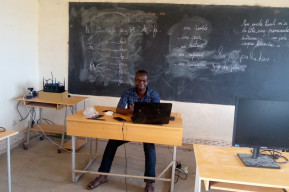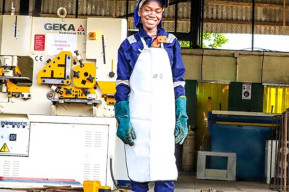News
UNESCO’s Global Skills Academy convenes partners to set up action plan to support 10 million learners by 2029

UNESCO’s Global Skills Academy organised a partners’ meeting to present and define a common action plan on the path to supporting 10 million learners by 2029.
The meeting, which took place online on 8 February, gathered over 45 participants, including representatives from the private sector and international organizations, UNESCO and the UNESCO-UNEVOC network.
Borhene Chakroun, Director of the Division for Policies and Lifelong Learning Systems at UNESCO, opened the meeting by re-affirming that “education is a master key for all the SDGs”, and the Global Skills Academy, through its network of partners, has great potential to innovate, collaborate, and continue to support young people as they transition into the labour market.
In order to achieve the mission’s target of economically and socially empowering 10 million young people with employability skills by 2029, priority should be given to promoting further collaboration, digital inclusion, and a demand-driven approach.
Collaboration on data and implementation
GSA partners further discussed the concrete contribution and impact that each one of them can bring to support the scale-up of GSA and the vision of the Global Education Coalition (GEC) more broadly. On the topic of data, partners suggested that more effort could go into a collaborative reflection on what the current data shows, what we can learn from it and what gaps still need to be addressed. These insights could be used for the tracking of learners and evaluation of impact on an international scale.
Promoting inclusion and diversity
In the discussion, the topic of inclusion was also raised, highlighting the need for more action to promote inclusion and diversity in this year’s action plan. For example, priority should be given to gender equality. This is a key guideline which needs to be carefully monitored to reach a 50-50 target. Overall, greater attention to inclusion would also support a more tailored and demand-driven approach to ensure every learner can benefit from the current trainings offered by GSA partners.
Activating a demand-driven approach
In line with the view of needing a stronger demand-driven approach, the question of “How can we find, measure and analyse the current skills’ demand in the labour market?” was discussed. Carmen Lopez Ordoñez, Digital Product Manager for Employability and Educational Innovation at Fundación Telefonica, presented the organization’s ‘Employment Map’, an interactive tool able to analyse and provide detailed information on job and skills’ demand with the use of Big Data. Ordoñez stated: “Our goal is helping people to prepare more efficiently so they can get a job faster… We monitor in real time all the job vacancies available, we analyze, and simplify all the information and offer it back to society”.
The partner roundtable and discussion served to clarify and guide the direction to be taken by the Global Skills Academy mission in 2023 and beyond, namely to promote collaboration, innovation and action on the path to supporting 10 million learners by 2029 and achieving SDG4.






